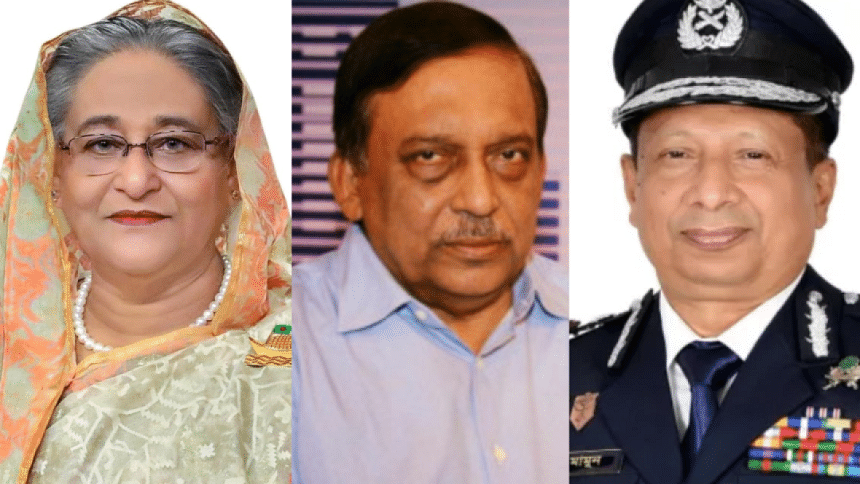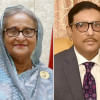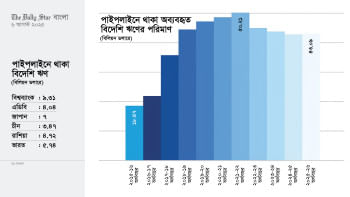Sheikh Hasina ordered not to treat or release July victims

The treatment of survivors of police brutality during the July 2024 uprising was halted at the National Institute of Traumatology & Orthopaedic Rehabilitation (NITOR) following the order from then prime minister Sheikh Hasina, alleged the second prosecution witness in crimes against humanity case against the ousted premier and her two top aides.
Survivor Abdullah Al Emran, who was undergoing treatment at the hospital during the former premier's visit, told the International Crimes Tribunal-1 yesterday that after speaking to him and several others injured, Hasina went to the help desk and instructed "No release, no treatment".
The tribunal also yesterday recorded statement of the third prosecution witness. Parvin, 27, a labourer and mother of two, in her deposition recounted how police shot her in the eye as she tried to save a wounded teenager on July 18, 2024. She said the youth later died as police again shot him under Jatrabari Flyover in the capital that day.
After their statements were recorded, state-appointed defence counsel for absconding accused Hasina and former home minister Asaduzzaman Khan Kamal cross-examined the two witnesses. Ex-inspector general of police Chowdhury Abdullah Al-Mamun, who became the state witness, is the other accused. He was in the dock during the hearing.
Another witness, Abdullah Al Emran, a Dhaka College student, said that as he joined a protest near Bijoynagar water tank around 3:00pm on July 19 last year, police shot in his left leg with a Chinese rifle. Two fellow protesters took him to Mitford Hospital and doctors referred him to NITOR, popularly known as Pangu hospital.
He said that as he was being taken there in an ambulance, joint forces intercepted him, two blood donors and two friends accompanying him near the residence of former home minister. There they were not allowed to move for an hour.
Finally, he was taken to NITOR. Emran said Hasina visited the hospital either on July 26 or 27.
Emran said, "Sheikh Hasina came to see me. I addressed her as 'Madam,' but she asked me to call her 'Apa' instead. She asked me where I studied. I told her that I was a student at Dhaka College. She then asked if I lived in the college dormitory, and I said no, I stayed outside the dorm. She seemed to realise then that I had been a protester."
Emran said Hasina asked him if he had seen who shot him. Emran replied that police opened fire, although he couldn't identify exactly who they were. Emran said he saw that Hasina also spoke briefly with four or five other victims.
"Afterwards, she went to the hospital help desk, where doctors, staffers, and others were present. I heard that she gave an instruction -- 'No release, no treatment'. But at the time, I didn't fully understand what she meant."
Emran said, "My surgery was slated for the following morning. However, after Sheikh Hasina's instruction, the hospital authorities refused to perform the operation. I received no further treatment. My condition began to deteriorate, and standard medications were not provided. As antibiotic supplied by the hospital was not working on me, I needed stronger one from outside, but the hospital didn't allow us to bring any from outside.
"In that moment of desperation, my father tried to have me discharged so that I could get proper treatment elsewhere. But the hospital refused. Instead, they planned to send me to jail after amputating my leg. However, my senior brothers did not allow them. That's when I finally understood what her chilling instruction truly meant: 'No release, no treatment'."
Emran told the tribunal that he held Hasina responsible as she ordered police to shoot and accused Kamal and Mamun of being shot by police.
He also showed his damaged leg before the court.
Defence lawyer Amir Hossain, representing Hasina and Kamal, cross-examined him.

 For all latest news, follow The Daily Star's Google News channel.
For all latest news, follow The Daily Star's Google News channel. 








Comments